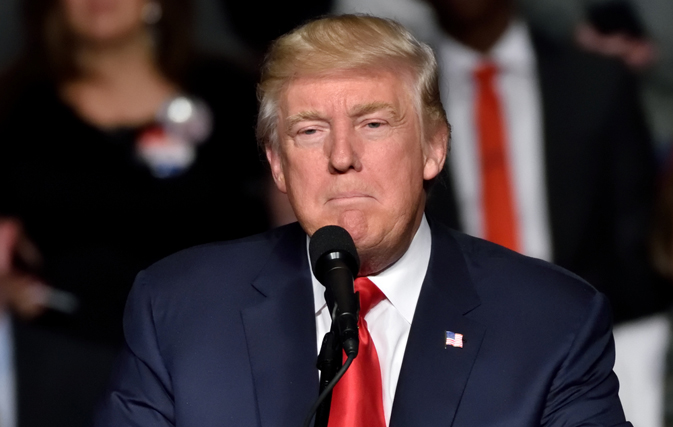WASHINGTON — President Donald Trump said Tuesday that the latest federal court ruling against his proposed travel ban comes at a “dangerous time,” maintaining that prohibitions on travellers from six Muslim-majority nations will keep the country safe.
The president tweeted, “Well, as predicted, the 9th Circuit did it again – Ruled against the TRAVEL BAN at such a dangerous time in the history of our country. S.C.”
“S.C.” may refer to the Supreme Court, where Trump has vowed to take his travel ban fight.
The San Francisco-based 9th U.S. Circuit Court of Appeals on Monday refused to reinstate Trump’s executive order banning travellers from six mostly Muslim countries. A three-judge panel said the administration failed to show that blocking citizens from Iran, Libya, Somalia, Sudan, Syria and Yemen was needed to protect the U.S. The court also found that the president’s order ran afoul of an immigration law that prohibits discrimination on the basis of nationality.
The 4th U.S. Circuit also has called Trump’s national security concerns an after-the-fact justification for a policy that was “steeped in animus and directed at a single religious group.”
The Trump administration has asked the Supreme Court to immediately reinstate its ban on travellers from six mostly Muslim countries, saying the U.S. will be safer if the policy is put in place.
WHAT COMES NEXT?
Attorney General Jeff Sessions said after Monday’s ruling that the ban was necessary to protect national security, and the president was within his lawful authority to enact it.
White House Press Secretary Sean Spicer said the administration was confident that the travel ban would be upheld by the U.S. Supreme Court.
The administration has asked the Supreme Court to immediately reinstate the ban on travellers.
At the Supreme Court, anything is possible if you have five votes – a majority of the court. The justices have a range of options in front of them. They could order an unusual June argument and try to resolve the travel ban lawsuits before they leave town for the summer. They also could essentially do nothing, leaving the two appeals court rulings in place.
One reason the court might feel some responsibility to act – and sooner rather than later – is because the administration has asked for expedited review. The court typically also has the last word when a federal court strikes down a law or presidential order.
The 9th Circuit’s more narrow focus on immigration law may appeal to conservative justices on the Supreme Court who might be loath to extend their review beyond the text of the executive order to include the president’s campaign statements about a Muslim ban, said David Levine, a professor at the University of California, Hastings College of the Law.
“They don’t need to psychoanalyze the president,” he said. “They don’t need to go beyond the four corners of the order.”
